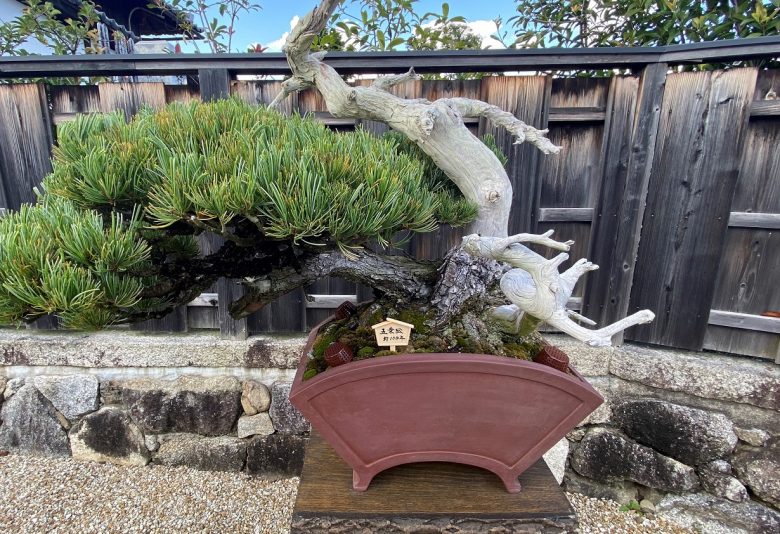
Living in Japan’s traditions: Wabi-sabi
While living in Japan, many aspects of the Japanese culture shall be perceived right away, like eating with chopsticks, the custom of bowing or the unmistakable shout of “irasshaimase” when entering a store or restaurant. Others shall be lived often at your share house with your housemates, guest house with your roommates or with your own family or friends or just by yourself at a private apartment in Tokyo or in Kyoto with SAKURA HOUSE.
Some other aspects though, may be more subtle and even difficult to understand because of its unique characteristics. One of these is the traditional aesthetic concept of “wabi-sabi”. Some of us have heard of it and possibly have an idea or image of what it is, but how and why did it origin? And, even more important, what is it basically?
We take a quick look at this unique concept on this Sakura Tip.
 Autumn leaves at SAKURA HOUSE KYOTO R machiya house
Autumn leaves at SAKURA HOUSE KYOTO R machiya house
To begin with, as with many Japanese words, both “wabi” (詫び) and “sabi” (寂び) had a delicate evolution of meaning throughout the centuries. Originating around the 16th century with tea master Sen no Rikyu, “wabi” originally meant the feeling of loneliness, being away from society and closer to nature. We can see then that it refers in a way to sticking to the original nature of things and their beauty as they are as presented by nature.
“Sabi” on the other hand carries the meaning of passage of time, withering and thereafter of sadness.
With these concepts then, wabi-sabi began to have a meaning of recluse living and without the luxuries of life in society. In a way, both words seem to complement each other giving a meaning of “realizing and appreciating the unique beauty that the passage of time gives to things”.

One aspect that helps understand the existence of this unique term, is another main factor that has molded Japanese culture through history, Buddhism.
Within it, the most fundamental aspect that has pushed wabi-sabi to be is the “sanbōin” (三法印) or the three marks of existence, which are impermanence, suffering and emptiness. It is believed that finding peace with all three of these marks shall allow for great wisdom.
We see the connection of these 3 concepts with wabi-sabi as the impermanence of withering things, the suffering this may cause and the emptiness (the deepest of all concepts) meaning something to the likes of finding out that things lack existence and that it is human beings who give them that meaning.

As with many traditional concepts of Japanese culture, it can be difficult to find words to describe it, so it is commonly recommended to feel it rather than rationally analyze it. The tea ceremony can be said to be an orchestra of everything wabi-sabi. The imperfectly shaped tea cups, the small and modest room (which used to be originally just of 4 tatamis or sometimes just 2) and one of the ceremony’s main concept of “ichi go ichi e”, meaning that every encounter is unique and unrepeatable, are just a few of the characteristics that best show this idea.

Walking around temples or traditional Japanese gardens shall also offer a glimpse into the uniqueness of this concept. As an example, even though a temple’s main gate may be weathering, we still find it beautiful and impressive. A nice garden may have a tree that has not grown straight but in an intricate way, giving it a peculiar appeal that stands out and gives the garden a unique personality.
 View of the Japanese garden in SAKURA HOUSE KYOTO R
View of the Japanese garden in SAKURA HOUSE KYOTO R
There shall be many chances to see wabi-sabi in everyday life in Japan, so if you are planning your long term stay in Tokyo for work, or a monthly stay in Kyoto for study and discovery, do not hesitate to contact our experienced staff to help you find your accommodation and bring you closer to all the beautiful aspects of living in Japan.
SAKURA HOUSE
Nishi-Shinjuku K-1 Bldg. 2F
7-2-6 Nishi-Shinjuku, Shinjuku-Ku Tokyo, Japan
Postal code: 160-0023
Google map
- From Japan:
- 03-5330-5250
- From outside Japan:
- +81-3-5330-5250
- Mail:
- [email protected]
- Office hours:
- 8:50 am to 8:00 pm
We are open every day of the year.
- Tokyo time:
- 15:03(We are open now!)







